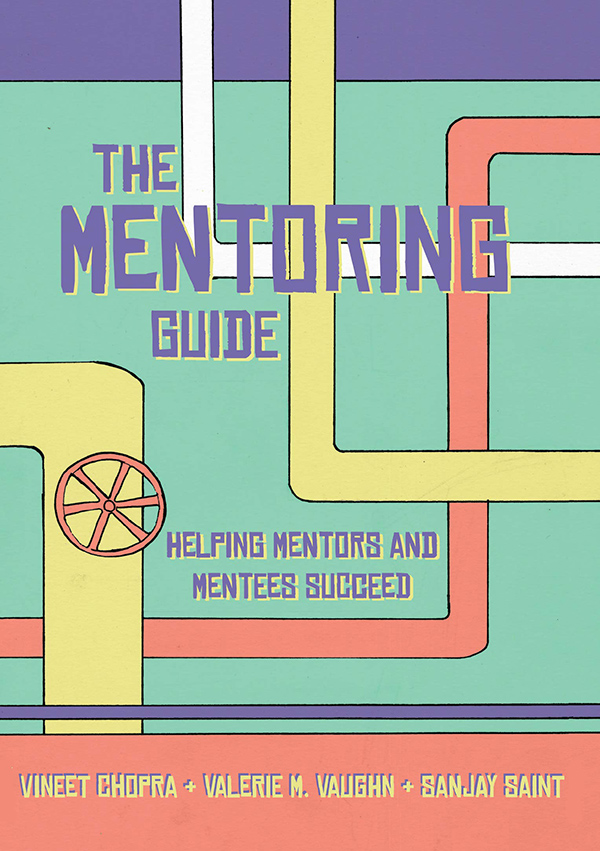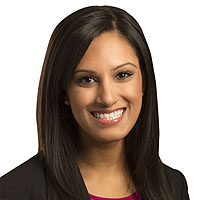Narrowing the Gender Gap Through Mentorship, Part 2: An Interview with Srinath Adusumalli, MD, Msc, FACC
.jpg)
This FIT Mentor Spotlight focuses on Srinath Adusumalli, MD, MSc, FACC, an early career cardiologist at the University of Pennsylvania. In addition to his numerous academic accomplishments, Adusumalli is also a champion for all FITs, including women. Click here for Part 1 of this interview.
What pearls of wisdom do you find yourself giving to your mentees to help navigate their careers?
First and foremost, it is critical for mentees to be introspective as they navigate their early career path. For example, during fellowship, one should constantly reevaluate which areas of practice resonate the most from both a medical and overall life perspective.
Ask questions of those more senior clinicians around you and get to know their career phenotypes within academic, private and hybrid practice models. This will help to build a list of valuable attributes during the job search process when the time comes.
Start early (ideally even in the first year of cardiovascular disease fellowship) engaging with professional societies like the ACC – it is one of the best ways to start developing professional networks in areas of interest and to learn more and engage with potential career niches, ranging from sports cardiology to clinical informatics.
One will ultimately need a team of mentors in order to succeed. As you begin to build that team, keep the four archetypes discussed earlier in mind. You will want to enlist individuals who can serve in all of those roles.
Do not be afraid to reach out and ask potential mentors, even those not at your institution, to be on your team – you will be surprised by how responsive people are, even if just for a short conversation about a specific topic.
Constantly seek feedback from those around you about your clinical work and career development. Those opportunities become fewer as you advance from fellowship into early career, so you should take advantage of them as a fellow.
Do not ignore the development of nonclinical competencies as a fellow. Skills and competencies such as writing clearly and concisely, time management, emotional intelligence, change management, public speaking, PowerPoint development, negotiation, efficient electronic health record utilization, and billing/coding are critical to early career success and often neglected in fellowship.
Focusing on those skills early on will reap outsized rewards and facilitate achieving work-life balance through the transition from fellow to early career clinician.
The College has great resources on this topic, including the Leadership Academy and Cardiovascular Summit meeting (which I highly recommend and have been attending each year since I was a junior fellow).

Remember to "pay it forward" when it comes to mentorship. As a fellow, you can serve as a valued mentor to those junior to you, your peers and even those senior to you. This will help you develop mentoring competencies and expand your professional network.
Check out this book, The Mentoring Guide: Helping Mentors and Mentees Succeed, to help guide you in your mentoring practice.
Finally, don't make "mentee missteps" as outlined in this Journal of the American Medical Association article.
As a young leader in cardiology, you have already mentored many budding cardiologists, including women. What do you see as the structure for mentorship for women?
Although I am certainly not an expert in this space, after working with several women mentees, I think an ideal mentoring structure would be implemented at several levels.
First, individual institutions need to devote specific effort towards developing mentoring programs for women. The mentors who are part of that program would ideally be supportive women and men at all career levels (including peer mentors) who are specifically trained (including in recognition and mitigation of implicit bias) to serve in the four archetypal roles of mentor, coach, sponsor and connector for women.
These efforts should be complemented by deliberate review of leadership opportunities and compensation programs to ensure gender equity – local mentors are key to advancing this. Institutional efforts can and should be connected to relevant extramural activities through organizations like the College, including national and state chapter ACC Women in Cardiology Sections, to promote broad professional network development.
Men who participate in these programs should work to develop skills and competency in adapting to gender-related needs of mentees.
